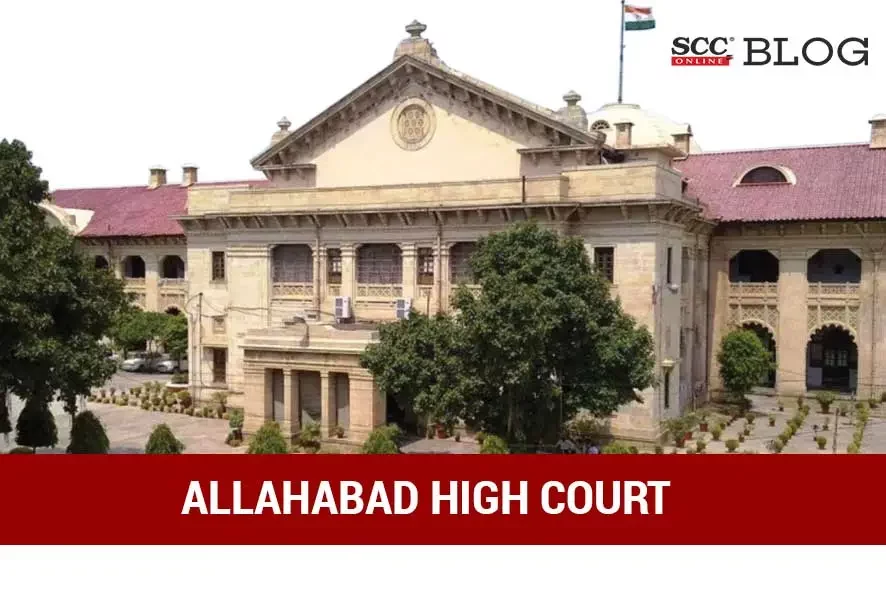Allahabad High Court: In a writ petition filed for directing Sate to declare the petitioner 1 (wife) as the guardian of respondent 6 (husband) for the purposes of disposing of and managing his assets, the division bench of Mahesh Chandra Tripathi and Prashant Kumar, JJ. has appointed petitioner 1 as guardian of her husband, who is in comatose state, and said that he will have the right to take decisions on behalf of her husband for his proper medical treatment, nursing care, welfare and benefit of her husband and their children with power to do all acts, duties and things with respect to all the bank accounts, investments, residential.
Background:
Respondent 6, who is the husband of petitioner 1 and son of petitioner 2 and 3 owns certain movable and immovable assets in saving account, investment, residential house owned jointly and individually. The petitioner’s husband is lying in a comatose state. The petitioners have incurred huge expenses in the medical treatment of respondent 6 and now they are facing great difficulty maintaining the family as well as the medical expenses of him, who was the sole bread-earner of the family.
Analysis:
After perusing the Medical Board, the Court noted that the petitioner’s husband (respondent 6) is in coma and in a vegetative state and is not in a situation to take a decision or to execute any conveyance. He needs a guardian to take care of him, his property and his affairs.
The Court noted that under the Mental Healthcare Act, 2017, the nominated representative is responsible for providing support in respect of decisions of treatment, and for taking decisions in respect of providing access to family, rehabilitation services, planning of admission, planning of discharge, appointments of attendants etc. on behalf of the mentally ill persons. Further, after perusing the Rights of Persons with Disabilities Act, 2016, the Court said that it is to first, examine if the Persons with Disabilities is capable of expressing his or her will or preferences, and second, under exceptional circumstances, where consultation is not possible, enable the provision of total support. However, the Court noted that both the Acts provide for appointment of support/guardian for people with particular disabilities/mental illness, but does not address the situation of a person, who is in comatose state.
The Court took note of Aruna Ramachandra Shanbaug v. Union of India, (2011) 4 SCC 454, wherein the Court explained difference between permanent vegetative state and minimal conscious state.
Further, it said that Section 2(s) of the Rights of People with Disabilities Act, 2016 defines persons with disabilities. This category of persons are those who are able to interact though not fully coherent. Hence, the guardian was to be appointed under Section 14 of the Act. However, for a person in comatose state, there is no interaction, and the victim would not respond to any stimuli, hence, the provisions of personal disability defined under Section 2(s) of the Act cannot be said to be attracted in such cases. Therefore, the Court invoked power under Article 226 of the Constitution of India, in the larger interest of patient lying in comatose state, who is in urgent need of treatment, support and for that they need funds to take care of this extraordinary situation, which cannot be ignored or compromised.
Further, the Court, after referring to the Shafin Jahan v. Asokan K.M., (2018) 16 SCC 368, wherein the Court has considered the scope of ‘parens patriae’ jurisdiction, said that that Constitutional Courts, including High Courts, can also act under their parens patriae jurisdiction to “meet the ends of justice”. Mental incompetency is listed as an exceptional circumstance which would justify the exercise of this jurisdiction. If the Court is satisfied that the person concerned is in a vegetative state, then surely “parens patriae” jurisdiction can be exercised.
Thus, looking into the health condition of husband of the petitioner, the Court said that he needs 24 hours medical assistance. The petitioners have already suffered grave emotional trauma and are running out of resources to enable them to take good medical care of respondent 6 and to meet the daily expenses of the family. Further, the parents of respondent 6 had given their wilful consent for appointment of petitioner 1 as his guardian.
Looking into the grave medical conditions in which, respondent 6 is in comatose state, and also perusing the medical report given by the medical board, the Court further said that respondent 6 is certainly in need of some person to take care of his health and also his financial interest, hence, the Court permitted to appoint petitioner 1 as a “guardian” of respondent 6.
[Pallavi Saxena v State of U.P, 2023 SCC OnLine All 2763, Order dated 21-11-2023]
Advocates who appeared in this case :
Counsel for Petitioner: Advocate Varad Nath, Advocate Hariom Kamal Singh
Counsel for Respondent: Chief Standing Counsel Ashish Mishra, Advocate Rahul Agarwal








